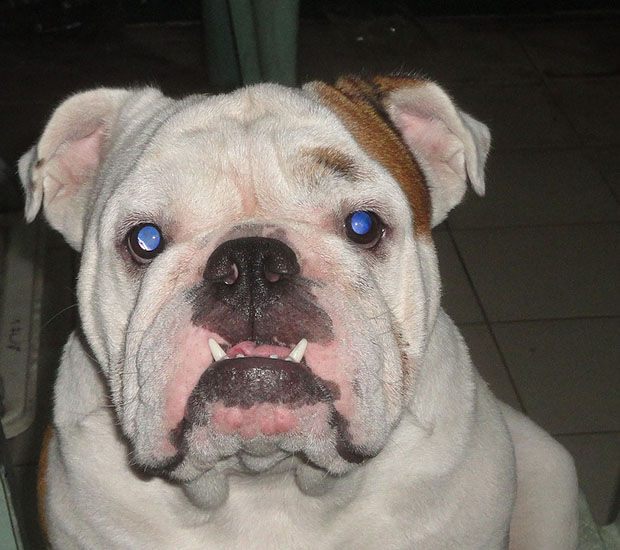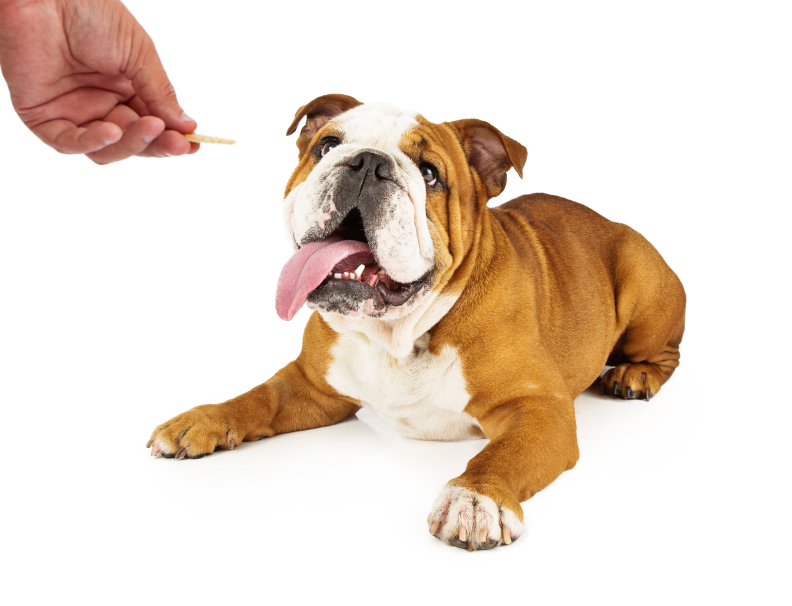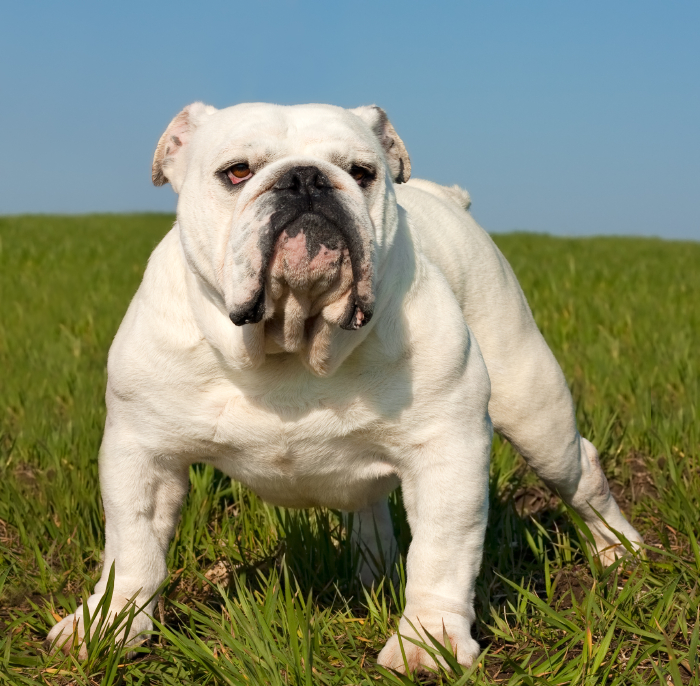Have you ever found yourself struggling to deal with separation anxiety in Bulldogs? Bulldogs love social interactions and it’s not surprising to hear them bark and misbehave as soon as you head out the door.

You’re lucky if all your Bulldog does is bark. The severity of this condition varies from dog to dog. Some dogs with Separation Anxiety would only bark and whine while some will resort to destructive behaviors and can potentially harm themselves.
Signs of Separation Anxiety in Bulldogs
Just like any other dog breed, separation anxiety in Bulldogs can be a worrisome because their behavior when the anxiety is triggered could lead to mess and accidents. If your Bulldog has separation anxiety, he may show one or more of these signs:
- Nonstop barking, howling or whining,
- Shaking or shivering,
- Destructive behavior,
- Peeing,
- Defecation,
- Coprophagia,
- Drooling
- Escape attempts,
- And chewing of paws or other parts the body.
How to deal with Separation Anxiety in Bulldogs
When your Bulldog shows any of those signs, never punish him. Dogs don’t really get the idea of punishments and for dogs, punishments are equal to attention. So punishments are better than being left alone. Also, giving your Bulldog punishments will only raise his stress levels and could lead to more nasty behavior.
Here are some tips you can do to deal with Separation Anxiety in Bulldogs:
Deal with Separation Anxiety in Bulldogs by training them to get used to being left alone
Yes, Bulldogs can be trained to get used to being left alone. To do this, start leaving your Bulldog for about 30 minutes. Then, adjust the duration of your absence to longer periods of time.
Make sure your Bulldog’s needs are taken care of before you leave
Did your Bulldog have his meal? Has he gone potty? Make sure your Bulldog ‘s needs such as meal time, potty time, and exercise are already taken care of before you leave. Feed your Bulldog before you leave as they are more docile when they are full. Exercise also lessens the chance of your Bulldog to be destructive.
Keep dangerous things our of your Bulldog’s reach
Before you leave, make sure the room you’re keeping your Bulldog is dog-proof. Keep food and dangerous items such as batteries, scissors or anything that can potentially hurt your Bulldog out of his reach. Unplug the appliances as some dogs have the tendency to chew on cords and get electrocuted.
Leave toys and distractions
You may another dog so your Bulldog doesn’t feel sad and alone when you leave. But if that is not an option, leaving your Bulldog his favorite toys will be a very helpful distraction.
Crate Train your Bulldog
Some dog owners are against crate training but this can help your Bulldog learn to feel contented while he is home alone. Some dogs do feel more safe secured inside their crates – thus mellowing down their separation anxiety. Just make sure to keep your Bulldog’s crate as comfortable as possible. Do not forget to leave his toys inside too.
When it’s time leave, just leave.
Making leaving an emotional moment for you and your Bulldog is unhealthy. The thought of leaving your Bulldog home alone may be sad but saying goodbye to him will only make your Bulldog more anxious.
Read: Bulldog Behavior and Temperament: How to Keep Your Canine Companion in Check
Medication to help ease Separation Anxiety in Bulldogs
Diphenhydramine, which is the active ingredient in Benadryl, can help lessen your Bulldog’s anxiety. Diphenhydramine is an over-the-counter antihistamine that has sedative properties and helps soften up anxiety in dogs. But before giving your Bulldog this drug, make sure to consult a veterinarian first.
Homeopathic medications for Separation Anxiety in Bulldogs
There are also homeopathic medicines that are given to dogs who suffer from separation anxiety such as: Pulsatilla nigicans and Passiflora.

